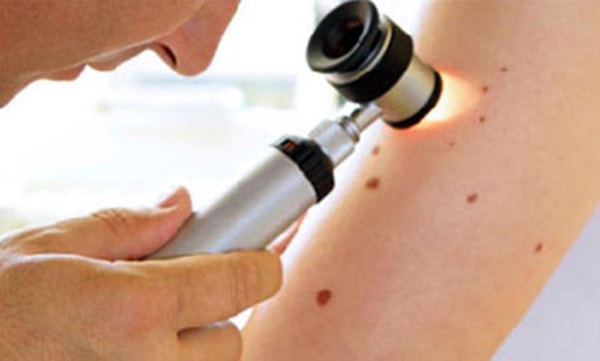Experts reveal 10 'red flags' on the body that show cancer is approaching
With the remarkable development of medicine, cancer today is no longer "incurable" if detected early and treated promptly.
Many physical symptoms can be completely normal or they can be a cause for concern. Here are 10 warning signs of approaching cancer that experts advise you to look out for:
1. Small lymph nodes, bruises
If you suddenly notice bumps or bruises under the skin in the groin, armpits, neck, or breasts for no reason, it could be skin cancer. If these signs appear frequently, go to the hospital for immediate examination.
2. Fever

If you have a fever without any reason, it could be a sign of an infection or virus entering your body. This is a cause for concern, especially if it recurs repeatedly. Experts recommend that if you take medication and your fever does not go down for several days, make an appointment with your doctor immediately.
3. Sudden weight loss
If you suddenly lose 5 kg or more without a specific cause such as dieting or medical treatment,... it is very likely that your body is damaged. Weight loss is a common sign of pancreatic, stomach, esophageal or lung cancer.
4. Night sweats
Like fever, night sweats are a sign that your body may be over-fighting cancer, viruses, or other invading cells. This is especially common in people with lymphoma or leukemia.
5. Persistent heartburn

People with GERD may not be able to tell the difference from heartburn, but in many cases it is a sign that the lining of the esophagus is damaged. This condition, called Barrett's esophagus, can be a precursor to cancer.
Additionally, persistent heartburn can actually be one of the first signs of stomach cancer, especially when accompanied by pain or difficulty swallowing while eating.
6. Mouth or tongue ulcers that take a long time to heal
In the hot season, people often have mouth ulcers and heat rash and are subjective about it. But if the ulcers persist for a month without healing, go to the hospital immediately before it is too late.
Sores can be a sign of skin cancer or, rarely, head or neck cancer. They are usually caused by herpes simplex virus type 1, which is highly contagious when you kiss or share utensils or spoons with someone who has the virus.
7. Abnormal moles

Skin cancer sometimes appears as a small pink mole. Melanoma is one of the most dangerous types of cancer, but it can be colorless and appear anywhere on the body, even under the fingernails and toenails. An open sore that won't heal can also be a sign of underlying skin cancer.
8. Bloating
Ovarian cancer is difficult to detect in its early stages. One of the most obvious signs is that you feel full quickly and bloated even though you have not eaten much food.
Therefore, you need to pay special attention if you experience pelvic pain or abdominal pain, bloating, difficulty eating, feeling full quickly, etc. Symptoms that appear frequently while your diet remains unchanged could be a red alert.
9. Cough

You should not ignore a cough that lasts longer than three or four weeks or an unusual cough with no specific cause. These types of coughs can be a symptom of cancer, or they can indicate other problems such as chronic bronchitis or acid reflux.
In addition, prolonged cough with accompanying symptoms such as chest pain, coughing up blood... can be a sign of lung cancer.
10. Frequent urination
If you frequently have to "visit" the toilet or feel discomfort when urinating, it could be a warning sign of prostate or bladder cancer.
Prostate cancer is the second most commonly diagnosed cancer in men. Most men are diagnosed in the early stages of the disease, which often has no noticeable symptoms. In later stages, the patient may experience urinary symptoms. In metastatic cases, common warning signs include fatigue, pain, and difficulty sleeping.
